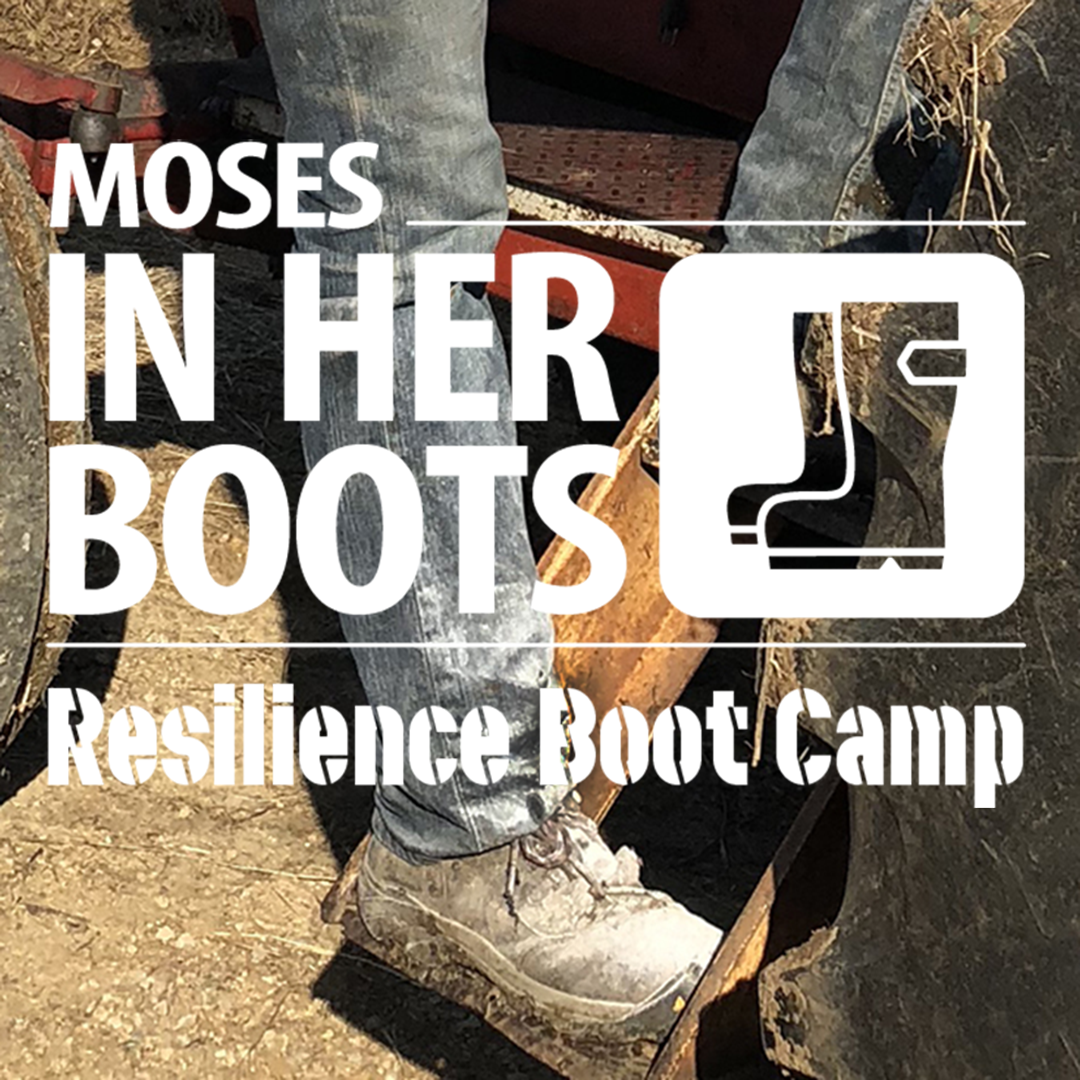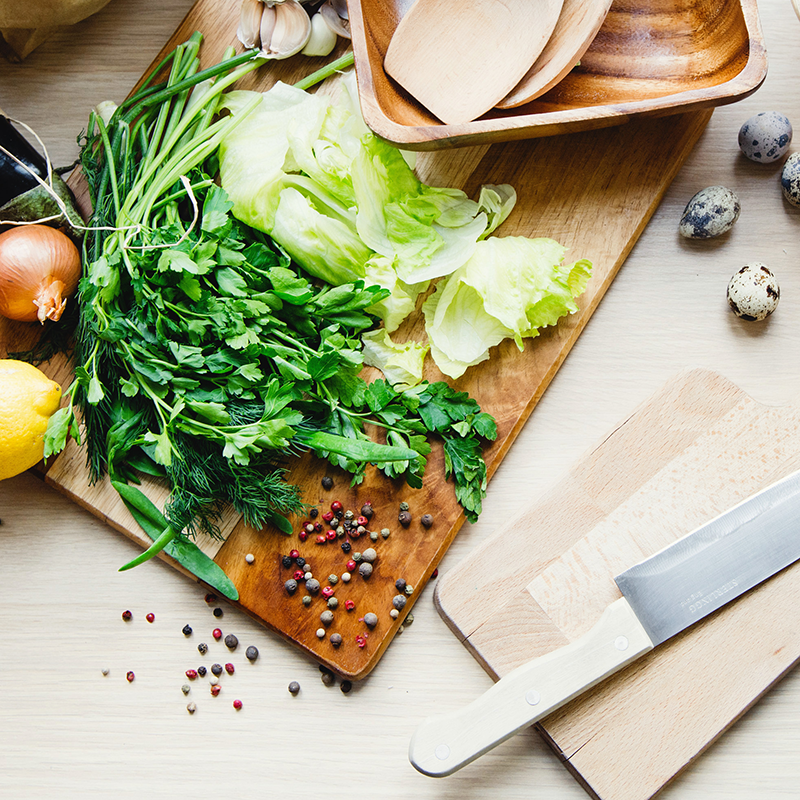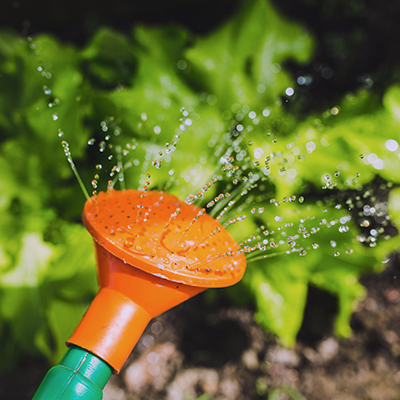|
|
 |
|
|
|
|
|
|
Week 1: Building the Toolbox |
|
|
|
Welcome to the first Resilience Boot Camp harvest of tips, ideas, and inspiration to fuel your resilience – delivered straight to your inbox. In the spirit of all our MOSES In Her Boots programming, we're rounding up a variety of women’s voices and perspectives, sharing authentic advice to support you in taking care of that most important tool in farming: you. Would love to hear from you and include your thoughts and ideas as we grow this project throughout July and August, peak summer season when we all need such resources most. Please connect! Lisa Kivirist, MOSES In Her Boots Coordinator |
|
|
|
Thoughts on Resilience
By Meg Moynihan Minnesota Department of Agriculture
Advocate for farmer mental health 1. “No” can be a complete sentence. “When we think about our roles on the farm, farmers who have kids, elderly parents, jobs off-farm, social duties, marriage commitments, and other types of responsibilities, sometimes it gets hard to say no and we need to simply practice. Remember after you give your no, you don’t need any other explanation.” |
|
|
|
2. Energy is finite. “We need to be really careful that we don’t waste our energy on things that don’t need doing, as well as not spending it on people who are not good for us. There are people in all of our lives who frankly don’t always have our best interests a priority, who are not going to do you any good, which is particularly challenging when it’s a family member. Protect yourself and don’t spend time trying to appease, delight, or satisfy.” 3. Not my problem to solve. “I sometimes say this out loud to myself: ‘That is not my problem to solve.’ I might be doing something in the house or outside flipping hay, and see something that needs to be done and, if it’s not an emergency, I let it go. This has been extremely freeing for me to recognize that there needs to be a barrier between what I’m doing in the moment and everything else, and to let things go.” 4. Be specific in supporting others. “We women are often very concerned about others, especially other women, and struggle with what to do. Be specific when offering help. When I was flailing here on the farm, occasionally people would call with good intentions and ask how they can help. I’d be at my wit's end just trying to keep myself on task and get things done and then I had to put energy I didn’t have into figuring out how they can help. My advice is to be specific with an offer like, ‘Hey I’m going to the grocery store. Can I pick something up for you?’ That would have been a godsend when I was eating cereal and milk for all those months. ‘Can I come over and watch the kids or take them to our house so you can get some of your projects done?’ If someone is going to see the banker, offer to come with and take notes. Giving someone a limited menu of options makes it easier to accept help.” |
|
|
|
|
|
Podcast:
Meg Moynihan on Building Your Resilience Toolbox Meg shares her personal story of navigating curveballs on her organic dairy leading up to her role today as an educator and advocate for farmer mental health support at the Minnesota Department of Agriculture. Meg reminds us of the importance of a well-rounded toolkit so we can thrive through the ups and downs of farming. |
|
|
|
|
|
|
|
|
|
Resilience Tips from the Field |
|
|
|
 |
Noreen Thomas
Doubting Thomas Farms “At this phase of my life after a full house, whittling down to cooking for just two people is sometimes a challenge. So, if I make a casserole dish or a meal in general, I will freeze half for a late working-day meal or when I just need a break. I call it my ‘frozen asset.’ I cook the oat groats I raise just like brown rice in a large serving and then freeze in smaller packages. Then I can quickly make a simple stir fry by cooking up whatever is in the garden along with a dash of honey, mustard, and soy sauce and pour that over cooked oat groats. Better nutrition and super easy.” |
|
|
|
|
 |
Clare Hintz
Elsewhere Farm “Make sure your farm fits you and not the other way around. I’m on the short side, and therefore, if you come to my farm you’ll see counters, shelves and other things like that lowered to suit me so I can quickly and safely find things. Ergodynamic counters should be three inches below your bent elbow. I’ve learned taking care of that most important tool – my body – will help me farm better for the long-term. I've actually cut the legs off chairs so that they fully fit my body. At five-feet one-inch, the right leverage also matters. I had a scythe made to fit my exact dimensions (the blade is nearly as long as the curved handle!) and my walk-behind tractor handlebars can be adjusted to lessen the strain on my upper body. I carry two smaller buckets of chicken feed out to the birds rather than one 40-pound bucket." |
|
|
|
|
 |
Mary Peabody
University of Vermont Extension, Women's Ag Network (WAgN) “Practice being transparent, clear and open in your own communications. If you are uncertain about the future of your farm business, worried about your family members, anxious about creating a new business model that pushes you out of your comfort zone — share those feelings. Do not get overly dramatic or detailed but also avoid sugarcoating and unrealistic expectations. Model for others how to put fears into words. Also, be clear in the steps you are taking to address your concerns and provide clear actions that you expect from every employee. Get policies, procedures and expectations down in writing — especially when things are changing rapidly, it is important to keep communication simple and clear." |
|
|
|
|
|
|
|
Recipe for Resilience:
Buttered Radish Toast
by Lauren Rudersdorf of Raleigh’s Hillside Farm Each week we’ll share a change-of-taste recipe that blends healthy nutrition, seasonal vegetable abundance, simplicity and – as in this week’s offering from Lauren Rudersdorf of Raleigh’s Hillside Farm and The Leek & Carrot blog – perspectives on how our food can inspire thoughtful change in today’s complex times. “I have learned that sharing a salad and having a difficult conversation is indeed a beautiful start to upending the injustices that surround us, but that it is also nowhere near enough at a time like this.” |
|
|
|
|
|
|
|
How to Set Priorities
& Manage Time
Tuesday, July 28
1 – 2:15 p.m. CDT With Charlotte Smith
3 Cow Marketing |
|
|
|
|
|
|
|
She’s Got Your Back: Tap into a Support Network
Tuesday, August 18
1 – 2:15 p.m. CDT With Denise O’Brien
Rolling Acres Farm |
|
|
|
|
|
|
|
|
|
|
|
Contact Us info@mosesorganic.org | 1-888-90-MOSES |
|
|
|
|
|
|
|